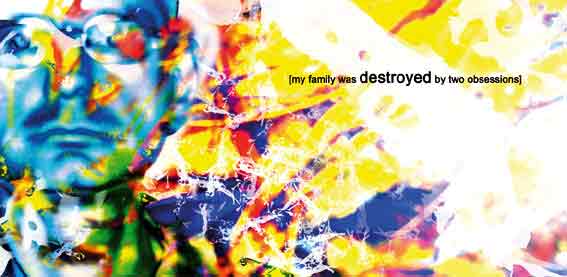|
In technical terms, Zoran Poposki’s latest individual exhibition
represents a move beyond his former mode of expression, based
exclusively on oils (acrylics) on canvas, into a new kind of media for
him – digital prints. The production process of his latest series of
‘expressive portraits’ starts with the photographs of his friends
(their names are the titles of the works) who, by means of a dadaist
method of chance, select sentences from works of trivial literature,
and in turn that quote becomes their personal ‘statement’. According
to the author, the title of the exhibition – HUSH, should be read in
terms of Lacan’s ‘muteness’, that is the inability to express
something, whereas the randomly chosen sentences, which don’t
correspond to their life situations but at the same time strangely
correspond to them, tell us something about them after all. The
interpretation of these sentences leads us to an entirely different,
quasi-serious extreme, even to a psychoanalytical approach in our
attempt at perceiving each person and its ‘statement’.

The exhibition comprises a total of eight large-scale digital prints,
while the technique in which the works are produced, the concept, as
well as their very process of production are completely new for Zoran
Poposki (this is his first time that he’s combining photographs, text
and sound). Nevertheless, the author leaves ‘his personal mark’ by
completing this whole with elements from his painting, such as the
perception of space and color as a primary means of expression evident
in his previous two exhibitions (‘Journey of Desire’, 2003, at the
Cultural Centre Tocka, Skopje, and in 2004 at the Cultural Centre
Marko Cepenkov, Prilep).
The calmness of the characters represented stands juxtaposed to the
expressive colors and the ‘free’ expression, the references of which
lie in abstract expressionism and action painting. At times one gets
the impression that this dominant picturality is in conflict with the
title of the exhibition. On the contrary, the expressiveness,
interpreted by the author as an expression of inner spiritual and
psychological states, contributes towards the realization of the
need/necessity for the being to tell its own ‘story’, towards
overcoming the barriers to free expression of emotions in a
superficial world ruled by muteness.
|